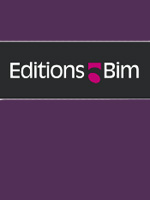Bach, Johann Sebastian (Glover) Sleepers, Wake {Wachet Auf}, from Cantata 20, BWV.20
Chamber Music Trios

-
Bach, Johann Sebastian (Glover)
Sleepers, Wake {Wachet Auf}, from Cantata 20, BWV.20 (Glover)
Baroque. For bass voice, trumpet & basso continuo. "Cantata No. 20 (®0 Ewigkeit, du Donnerwort¯, for the first Sunday after Trinity and first performed between 1723 and 1727) is one of several in which Bach writes for slide trumpet (®tromba da tirarsi¯).The slide trumpet is demanded explicitly in the opening chorus and the Chorale No. 7 of the first part of the cantata, as well as in the final chorale of the second part (Chorale No.7 repeated). The present aria, ®Wacht auf¯, opens the second part of thework, after a pause for the sermon. Here the word ®slide¯ is not indicated, although common sense tells us that Reiche, the trumpeter, would not necessarily have changed instruments for this one aria, since a slide trumpet is the same as a natural trumpet if the slide is left stationary. Indeed, the aria can be played on a natural trumpet without difficulty. Only one or possibly two notes lie outside the harmonic series. A single a' in bar 28 can easily be lipped down from the too-flat seventh partial (b'-flat). In the preceding bar 27, the low g is open to question: if Bach was really thinking of the slide trumpet, he should have written an F here, since the chord at this point calls for an F, not a G. We offer this informatIon so that performers are free to make up their own mind; we are sure that as many will opt for the F as choose to remain with the written G. In any case, slide or natural trumpet, the aria contains as pompous an ®Affekt¯ as any in Baroque trumpet writing. For advice on tonguing the sixteenth-note triplets, see Quantz. It is well known that many of Bach's trumpet parts were played by Gottfried Reiche (1667-1734). Like several other famous trumpeters - such as Johann Caspar Altenburg and his son Johann Ernst Altenburg, as well as J. S. Bach's father-in-law, Johann Caspar Wlcken - Reiche received his training at the court of Weissenfels, coming to Leipzig in 1688. Bach himself moved to Leipzig in 1723. Reiche thus played eleven years for Bach. The trumpeter who first performed the Christmas Oratorio - and indeed many other important Bach works such as the Ascension Oratorio - was Ulrich Heinrich Ruhe (d. 1787). Ruhe played sixteen years for Bach." -Edward H. Tarr -
- Category: Chamber Music Trios
- Item: 059392
- Grade/Level:
- Price: $23.45
-
(usually ships in 10 to 15 days)
